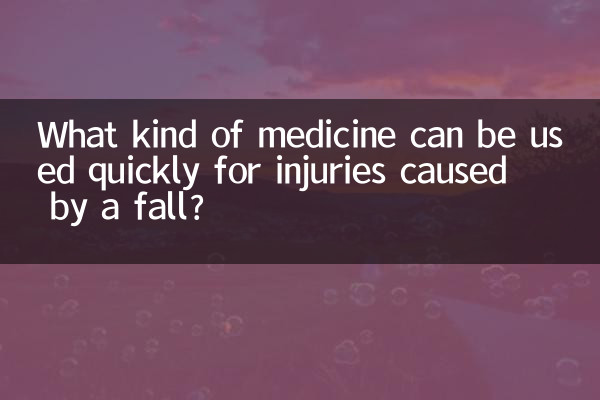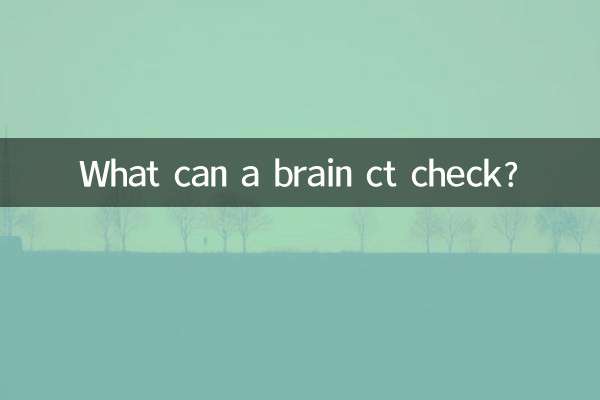What kind of medicine can be used quickly for injuries caused by a fall?
Falls are common accidental injuries in daily life. How to deal with wounds quickly and effectively and promote healing is a concern for many people. This article will combine the hot topics and hot content on the Internet in the past 10 days to give you a detailed introduction to medication recommendations and care methods after a fall.
1. Emergency treatment after a fall

After a fall, the first thing to do is to treat the wound urgently to avoid infection and aggravation of the injury. Here are common emergency procedures:
| steps | Specific operations |
|---|---|
| 1. Clean the wound | Rinse the wound with water or saline to remove dirt and bacteria. |
| 2. Stop bleeding | Use clean gauze or towel to apply pressure to the wound to help stop bleeding. |
| 3. Disinfection | Use iodophor or alcohol to disinfect the wound to avoid infection. |
| 4. bandage | Cover the wound with sterile gauze or a band-aid to protect it. |
2. Recommended medications after a fall
According to the hot topics and medical advice on the Internet in the past 10 days, the following are commonly used drugs and their effects after a fall:
| drug type | Common medicines | function |
|---|---|---|
| External disinfectants | Iodine, alcohol, hydrogen peroxide | Clean the wound to prevent infection. |
| topical antibiotic ointment | Erythromycin ointment, mupirocin ointment | Prevent and treat bacterial infections. |
| painkillers | Ibuprofen, acetaminophen | Relieve pain and inflammation. |
| healing medicine | Recombinant human epidermal growth factor gel | Accelerates wound healing. |
3. Care precautions after a fall
In addition to medication, post-fall care is also very important. Here are some things to note:
1.Keep the wound dry:Avoid contact with water to prevent infection.
2.Regular dressing changes:Depending on the condition of the wound, change the dressing every day or every other day.
3.Avoid strenuous exercise:After a fall, try to reduce activities to avoid wound dehiscence.
4.Diet conditioning:Eat more foods rich in protein and vitamins, such as eggs, milk, fresh vegetables, etc., to promote wound healing.
4. Misunderstandings about fall care in hot topics
In recent discussions about falls on the Internet, some common misunderstandings have emerged, which require special attention:
| Misunderstanding | Correct approach |
|---|---|
| Use toothpaste or flour to stop bleeding | These substances may cause infection and professional disinfection and hemostasis methods should be used. |
| Wounds heal faster when exposed to air | Exposed wounds are prone to infection and should be bandaged appropriately. |
| Apply ointment frequently | Overuse of ointments may hinder wound healing, so follow your doctor's advice. |
5. When Do You Need Medical Treatment?
Although most fall injuries can be treated at home, the following situations require prompt medical attention:
1.Deep wound or bleeding that doesn’t stop:May require stitches or professional treatment.
2.Wound infection:Symptoms such as redness, swelling, pus, and fever appear.
3.With a broken bone or severe pain:Bones or ligaments may be injured and a radiograph may be required.
Conclusion
Proper medication and care after a fall can effectively speed up healing and avoid complications. This article combines hot topics and medical advice from across the Internet to provide you with comprehensive guidance. If the injury is serious or you are not sure how to treat it, seek medical attention promptly to avoid delays in treatment.

check the details

check the details